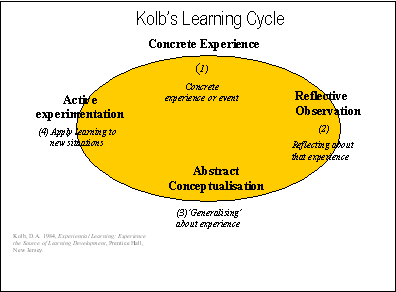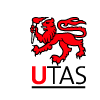Experiential Learning
Too often theory is seen to be unrelated to career and workplace requirements. The importance of meeting the challenge of linking theory with practice, and of providing effective training and education has become increasingly recognised.
One of the most important aspects of learning is that of integrating theory with practice: to use knowledge and ideas to manage real life situations.
Competency-based training systems focus heavily on the importance of the workplace as the appropriate site for training and this is reflected in modern approaches to health professional education.
In an experiential clinical program framework, students are provided with the opportunity to explore real situations and to gradually apply theoretical understanding in controlled practice settings, with supervision. They are encouraged to synthesise knowledge derived from a variety of alternative viewpoints and apply this to varying contextual situations.
At the same time, the reality of practice experience in health care settings provides students with the opportunity to contextualise theoretical learning. Therefore, students are motivated by a desire to learn through their engagement in practice and the relationship between problem framing, problem solving and learning is explicitly recognised.
While it is acknowledged that people have always learned from experience, the idea of ‘experiential learning’ as a formal educational perspective has only been recognised over the past decade.
Experience is seen as fundamental to learning, that is, learning as a process creates knowledge, through reflecting on experience.
Many models of experiential learning have been developed, yet Kolb's has probably been the most influential in restructuring approaches to adult learning. Kolb’s 1970 experiential learning model continues to retain validity, which is apparent when almost every textbook on adult education practice affirms the importance of experiential methods and many universities now recognise adults’ prior learning and grant credit for experience.
Kolb’s argument was that learning and change resulted from the integration of emotional experiences with thought processes, conceptual analysis and understanding.
Kolb conceptualised the Experiential Learning Cycle through opposing elements that transform knowledge and skills, through the medium of experience.
In other words, ‘… what you do is affected by what you think’, and ‘… what you think is affected by what you do’.

Rogers distinguished two types of learning:
- cognitive (meaningless)
- experiential (significant)
The former corresponds to academic knowledge such as learning pure patho-physiology and the latter refers to applied knowledge such as clinically understanding how the human body functions interact. The key to the distinction is that experiential learning addresses the needs and wants of the learner.
All human beings have a natural ability to learn; the role of the supervisor is to facilitate such learning.
Rogers lists the qualities of experiential learning as:
- personal involvement
- self-initiated
- evaluated by learner
- pervasive effects on learner
According to Rogers, experiential learning is equivalent to personal change and growth.
Facilitating learning includes:
- setting a positive climate for learning
- clarifying the purposes of the learner(s)
- organising and making available learning resources
- balancing intellectual and emotional components of learning
- sharing feelings and thoughts with learners but not dominating
According to Rogers, learning is facilitated when:
- the student participates completely in the learning process and has control over its nature and direction.
- it is primarily based upon direct confrontation with practical, social, personal or research problems.
- self-evaluation is the principal method of assessing progress or success.
|




